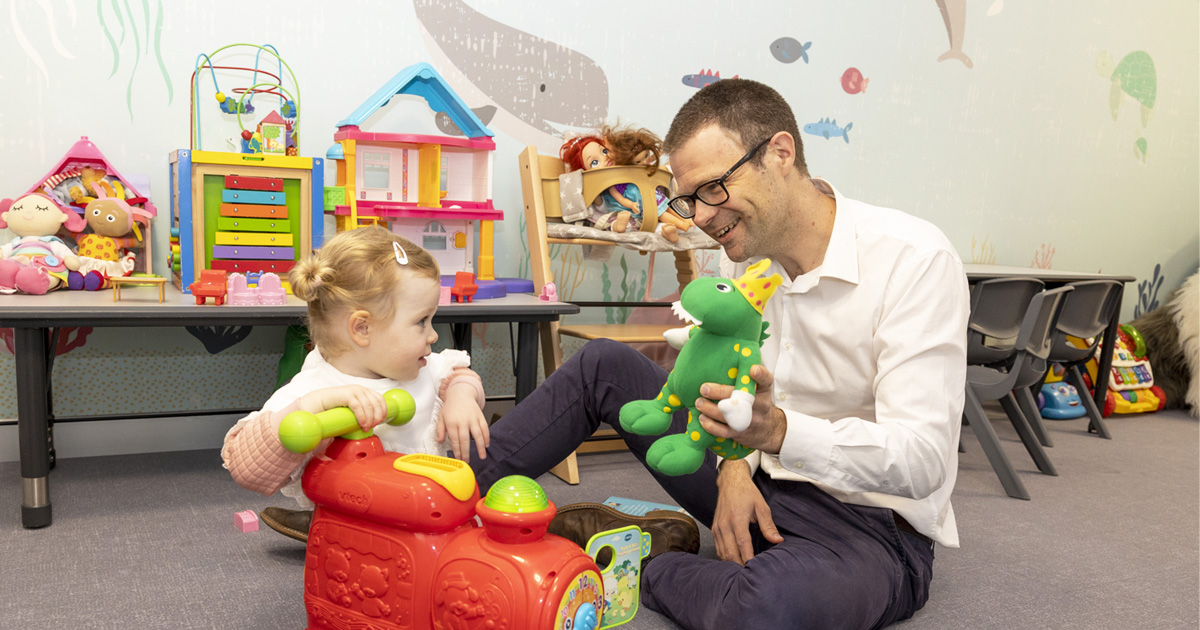Search
Research
Harmonizing the CBCL and SDQ ADHD scores by using linear equating, kernel equating, item response theory and machine learning methodsA problem that applied researchers and practitioners often face is the fact that different institutions within research consortia use different scales to evaluate the same construct which makes comparison of the results and pooling challenging.
Research
Autistic and autism community perspectives on infant and family support in the first two years of life: Findings from a community consultation surveyMost support programmes for Autistic children are available only after they are diagnosed. Research suggests that parenting supports may be helpful for parents and their infants, when provided in the first 2 years of life - before a formal diagnosis is given, but when information suggests an infant is more likely to be Autistic. However, we do not know how acceptable these types of supports might be to the Autistic and autism communities.

News & Events
The Kids welcomes Federal Government’s commitment to early supportThe Kids Research Institute Australia welcomes today’s Federal Government announcement of a new pilot program to support babies showing early social communication differences in Western Australia.
Research
Mode of delivery and behavioral and neuropsychological outcomes in children at 10 years of agePrevious studies have reported that mode of delivery, particularly cesarean delivery is associated with neurodevelopmental outcomes in children. This study evaluates behavioral and neuropsychological test scores in children based on mode of delivery.
Research
Which emerging autism features at 12 months of age are associated with later parent-child interaction?Parent-child interactions (PCI) in infants with an elevated likelihood (EL) of autism start to diverge from other infants toward the end of the first year. This divergence is often attributed to emerging features of autism impacting infant social interactions in ways that become increasingly amplified. The aim was to identify which, if any, 12-month autism features were associated with later PCI qualities.
Research
Influences of bilingual input on English vocabulary size and academic outcomes: a large-scale longitudinal study following children in Australia from five to ten yearsResearch from large population-based studies investigating the language and academic outcomes for bilingual children is rare. The current study aimed to investigate the influence of dual language exposure on (i) English vocabulary outcomes at 5 years (126 bilinguals, 1675 monolinguals), and 10 years (vocabulary: 92 bilinguals, 1413 monolinguals:), and (ii) academic outcomes at 10 years (107 bilinguals, 1746 monolinguals).
Research
Developmental vitamin D deficiency increases foetal exposure to testosteroneAutism spectrum disorder (ASD) is a group of neurodevelopmental disorders which are more common in males. The 'prenatal sex steroid' hypothesis links excessive sex-steroid exposure during foetal life with the behavioural differences observed in ASD. However, the reason why sex steroid exposure may be excessive remains unclear. Epidemiological studies have identified several environmental risk factors associated with ASD, including developmental vitamin D (DVD) deficiency.
Research
Characterizing predictors of response to behavioral interventions for children with autism spectrum disorder: A meta-analytic approachA comprehensive understanding of specific factors contributing to variability in responsiveness of children with autism to interventions is paramount for making evidence-based clinical and policy decisions. This meta-analysis examined child and family characteristics, as well as intervention design factors, associated with outcomes of behavioral interventions for children with autism.
Research
Developmental Relationship-Based Interventions for Autistic ChildrenAndrew Videos Whitehouse Watch and listen to Andrew PhD Deputy Director (Research); Angela Wright Bennett Professor of Autism Research at The Kids
Research
A randomised-controlled trial of a parent-mediated intervention for managing uncertainty in young children diagnosed on the autism spectrumGail Andrew Videos Alvares Whitehouse Watch and listen to Andrew PhD PhD Principal Research Fellow Deputy Director (Research); Angela Wright Bennett
